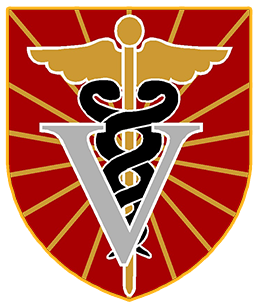Through the UPLB Graduate School, CVM also offers the Master in Veterinary Epidemiology (MVetEpi) program is designed to prepare veterinarians and other animal health professionals to design and implement epidemiological studies and surveillance system; apply epidemiological principles and methods to risk analysis, surveillance, prevention and control of diseases in animal populations; evaluate the risks and relevant factors pertaining to specific diseases and to formulate an appropriate prevention or control strategy or a research study; manage, analyze and interpret animal health data; and communicate effectively the results of an assessment, surveillance or investigation to appropriate groups involved in animal or human health, key policy makers, farmers, the media and the public.
Sound animal health care decision making and prevention and control of zoonoses, animal diseases and food borne diseases have to be based on adequate information about animal health status, risks involved and the proper analysis and interpretation of animal health data. The program is designed to have a pool of field epidemiologists who are sufficiently knowledgeable, skilled, competent, confident and able to perform essential surveillance, risk analysis and disease prevention and control activities in populations, including animal health investigation and research.
In the program, students will have ample opportunities to work on animal health events of current importance to their workplace or practice areas, even while studying. The Field Project in Veterinary Epidemiology will further strengthen the capacity of the students in solving animal health problems and in conducting animal health researches since the project can be part of the regular veterinary service or practice activities, thus serve ongoing animal health needs.
At the end of the program, graduates will be able to design and implement epidemiological studies and surveillance system; apply epidemiological principles and methods to risk analysis, surveillance, prevention and control of diseases in animal populations; evaluate the risks and relevant factors pertaining to specific diseases and to formulate an appropriate prevention or control strategy or a research study; manage, analyze and interpret animal health data; and communicate effectively the results of an assessment, surveillance or investigation to appropriate groups involved in animal or human health, key policy makers, farmers, the media and the public.
The MVetEpi requires all students to earn a total of 30 units for graduation. At least 18 units of major courses, three (3) units of Special Topics, six (6) units of Field Project, and three (3) units of elective must be earned. Students begin the program with six (6) units of required courses in summer. The Field project may be in the form of a research study, a case study, risk analysis study, a program evaluation or a scientific epidemiological report on animal disease and will be presented and defended orally before a panel. Students shall submit a paper in publishable form as a requirement for graduation.
The admission requirements of the Graduate School shall be followed. In addition, applicants shall be holders of DVM or related degree in life sciences from any recognized institution and with at least one year experience in veterinary or related practice.
COURSES AND DESCRIPTIONS
Major (Required) Courses: Minimum of 18 units
VEPI 221
VETERINARY EPIDEMIOLOGICAL METHODS (3 units). Application of epidemiological concepts and methods for systematic inquiry into disease status of animal populations
VEPI 222
VETERINARY SURVEILLANCE (3 units). Epidemiologic concepts and methods for surveillance of animal and zoonotic diseases
VEPI 223
EPIDEMIOLOGIC APPROACH IN THE CONTROL OF INFECTIOUS ANIMAL DISEASES (3 units). Application of epidemiology in the control of infectious diseases in animals
VEPI 224
OUTBREAK INVESTIGATION AND CONTROL (3 units). Epidemiologic approach to the investigation and containment of disease outbreaks
VEPI 225
VETERINARY RISK ANALYSIS (3 units). Introduction to animal health risk analysis.
STAT 264
STATISTICS FOR EPIDEMIOLOGY (3 units). statistical methods in the collection, organization, and analysis of epidemiologic data and subsequent interpretation
Required Courses: Special Topics and Field Project (Total of 9 units)
VEPI 291
SPECIAL TOPICS IN VETERINARY EPIDEMIOLOGY (3 units)
VEPI 295
FIELD PROJECT IN VETERINARY EPIDEMIOLOGY (6 units). Research project in veterinary epidemiology
Elective Course (Minimum of 3 units): CHOOSE AT LEAST ONE
EPIDEMIOLOGY
VEPI 226
VETERINARY INFORMATICS (3 units). Application of informatics in veterinary epidemiology
VEPI 227
ENVIRONMENTAL ANIMAL HEALTH (3 units). Factors that may have adverse effects on the health of animal and human populations and the wider environment, and their management
VEPI 228
VETERINARY DIAGNOSTICS (3 units). Evaluation of veterinary diagnostic tests in populations
VETERINARY PUBLIC HEALTH
VPH 222
MICROBIAL AND PARASITIC ZOONOSES (3 units). Biological, ecological, and epidemiological features of microbial and parasitic infections transmissible between man and vertebrate animals
POLICY DEVELOPMENT
DM 220
PUBLIC POLICY AND PROGRAM ADMINISTRATION FOR DEVELOPMENT (3 units). Policy formulation, analysis and implementation; program administration and project management for development
SPPS 202
METHODS OF POLICY ANALYSIS (3 units)
LOCAL GOVERNANCE
LGD 210 GOVERNANCE AND DEVELOPMENT (3 units). Concepts, models, principles, tools, indicators, practices, issues, trends and prospects in governance and development
DEVELOPMENT COMMUNICATION
DEVC 261
TESTING AND EVALUATION OF COMMUNICATION MATERIALS (3 units). Methods of testing and evaluating print, broadcast and audiovisual communication materials; audience studies
DEVC 201
COMMUNICATION THEORY (3 units). The significance, nature, elements and dynamics of the communication process; some theories and perspectives in the study of communication
AGRICULTURAL ECONOMICS
AECO 111
FARM MANAGEMENT (3 units). Principles and analytical tools in the organization of the farm
AECO 241
ECONOMIC ANALYSIS AND PLANNING OF AGRICULTURAL PROJECTS (3 units). Economic analysis of agricultural projects from national and individual viewpoints; identification of projects; preparation and evaluation of project plans
